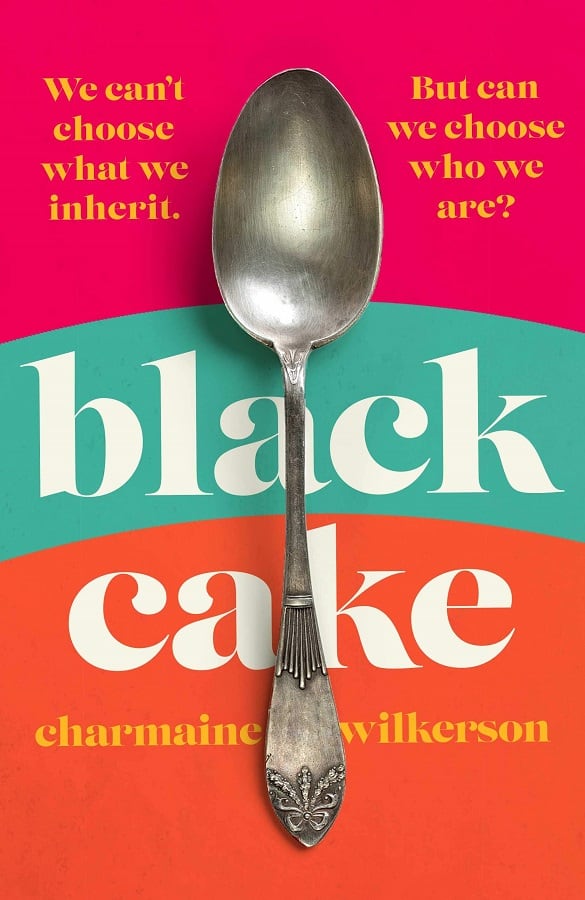Identity, heritage, and culinary traditions: a conversation with Charmaine Wilkerson, author of Black Cake
It is a cloudy late afternoon in Rome and crowds of tourists are back in Piazza Navona. I am sitting down with Charmaine Wilkerson, author of the New York Times bestseller novel Black Cake. Elegantly wrapped in a blue-navy trench coat, Charmaine orders a mint tea, surprising me with her impeccable Italian.
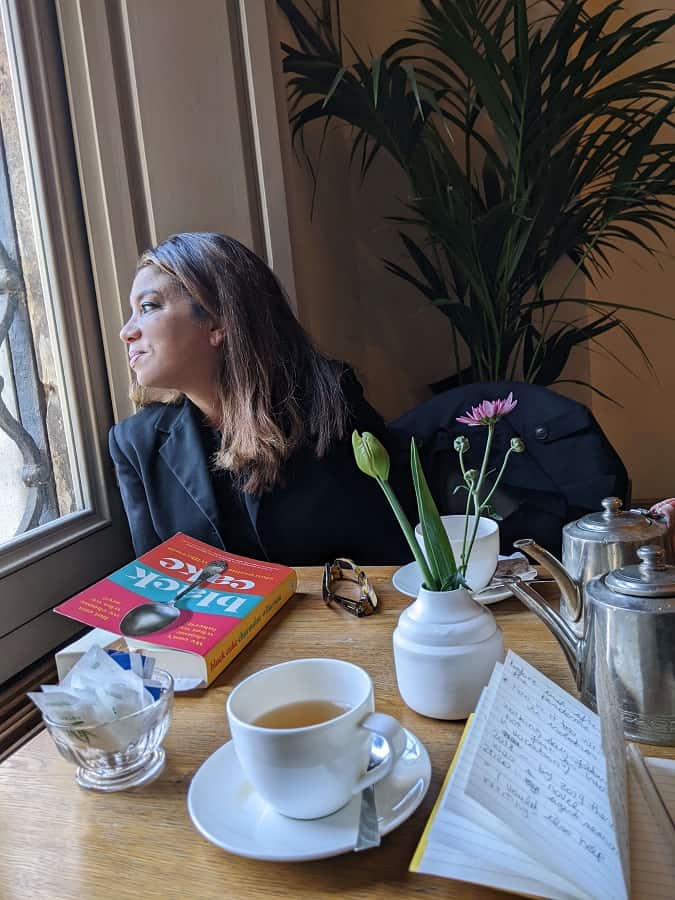
We could almost say that Charmaine is a romana, as she has lived more years in Rome than anywhere else in the world. She is quite a globetrotter.
Her parents being originally from the Caribbean. Charmaine spent part of her childhood in Jamaica and a great deal of her life in the United States. She moved back and forth before setting her base in the Eternal City, where she wrote most of her debut novel Black Cake.
“I am a neighbourhood person. I like the neighbourhoods that still have a Roman character.”
To start with, I ask Charmaine about her experience living in Rome and what she likes about the city. I am simply charmed by her words as she tells how she enjoys riding her old and rusty bicycle, taking detours, and stopping to take pictures along the way. She never gets tired of Rome’s iconic monuments and buildings.
“I just remind myself that I live in this amazing city.”
Even after more than twenty years in the Italian capital, this city does not stop fascinating her. I am not too surprised: walking through narrow vicoli, listening to the soothing sound of water roaring from marble fountains, admiring Roman treasures, and ochre-coloured palaces: Rome is undeniably unique.
“From the first time I came to Italy, I felt like I would want this country and Rome in particular to be part of my future, that it will always be part of my future.”
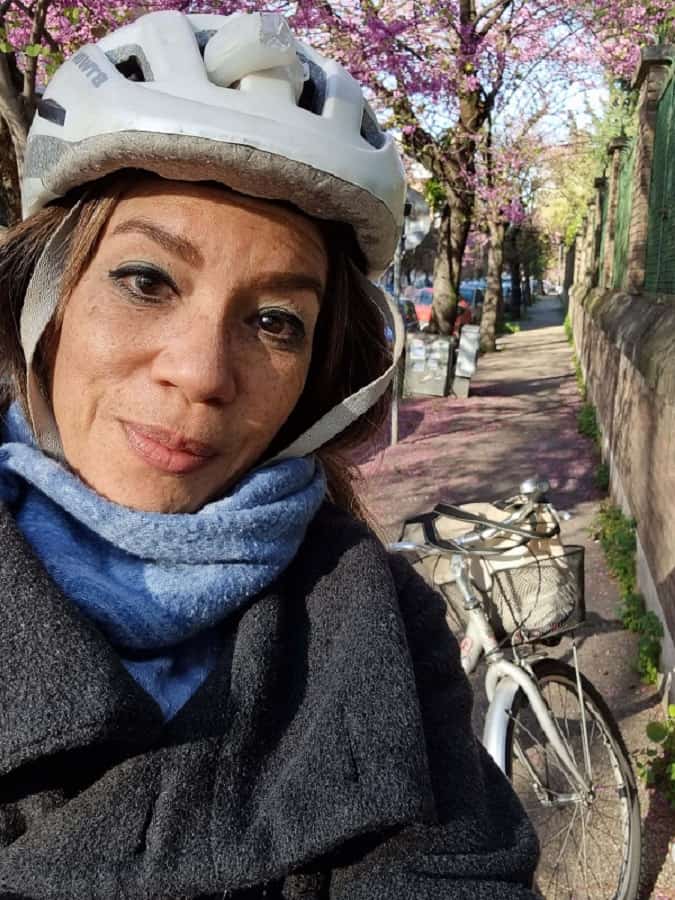
“Anything we do is interesting for writers, even if we don’t write about it.”
Charmaine began writing her first novel in Rome before the pandemic started. By 2019 the novel was there, and she spent most of the lockdowns in revision mode. She has dedicated herself to what she calls a true vocation, an internal need to pursue a certain path. Despite the challenging circumstances caused by the pandemic, Charmaine never thought of giving up writing. She had promised herself that she would always keep writing.
Talking about the inspiration behind her novel, she shares her thoughts. It is true that the idea of the book comes from her mother’s legendary black cake. Charmaine herself, as the book’s main character, comes from a Caribbean- American family, but the book is not autobiographical she clarifies.
“Everything we do in life, the people we meet, the things we see, the work we do, somehow it comes out in our imagination,” she says.
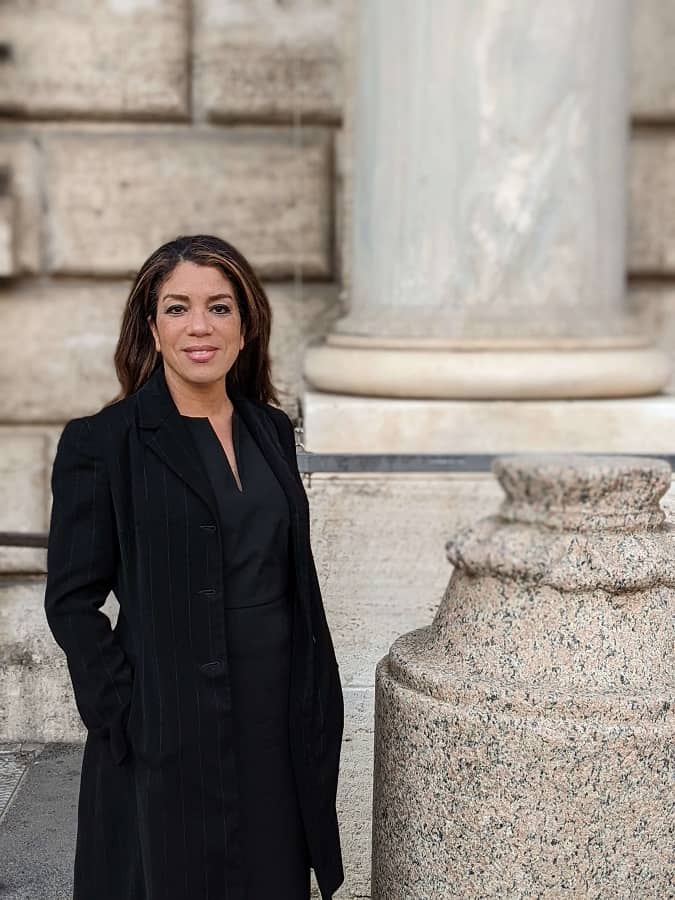
Black Cake’s characters are full of colours and facets. Such as Benny in New York or Eleonor in London experiencing the feelings of loneliness and isolation while living away from their family, childhood friends, and in a different country. For Charmaine, whose family lives across the ocean, life is also made of friends, colleagues, friendly neighbourhoods, and acquaintances. “They form part of the fabric of the community,” she says.
Her novel has different layers, and it touches on several current issues: race, gender discrimination, domestic violence, and cultural stereotypes. How does Rome feel to you considering all these aspects?
For Charmaine, Rome is a place where there is a lot of dialogue, people are interested in discussing and willing to engage. She believes that the wonderful power of fiction is to give writers the freedom to explore real social issues. This can be done by following fictional characters along their life journeys, without the need to comment specifically on one topic or another.
“Writers often do ask questions; they don’t always have the answers”
“If the writer has a responsibility, social or political, it is to dare to ask questions and put themselves in the character’s shoes”
When I ask Charmaine about her favourite food traditions, she takes me to Abruzzo. This is her relatives’ Christmas Eve lunch where they would cook a simple soup made of chickpeas on toasted bread, served with olive oil. She enjoys it especially because it is a local homey plate.
What about cacio e pepe? She loves it. She also has a soft spot for cheeses and Indian food – she mentions the restaurant in Via dei Serpenti as another one of favourites. The non-Italian food places in Rome have increased, according to Charmaine. Just as Marble, one of Black Cake’s fictional characters, Charmaine is interested in discovering food traditions. In particular, she is interested in recipes that used to come from somewhere else.
The diaspora of food is what fascinates her, and not by chance, this is one of the main themes of her book. “Food is a kind of language, that tells us where we have been and whose paths we have crossed as we migrate or move from one economic situation to another.”
In Jamaica, she enjoyed eating fish soup – she could barely imagine that it used to be a leftover dish. Another type of food that Charmaine mentions is polenta which somehow reminds her of the Caribbean corn meal porridge that she would typically eat as a little girl.
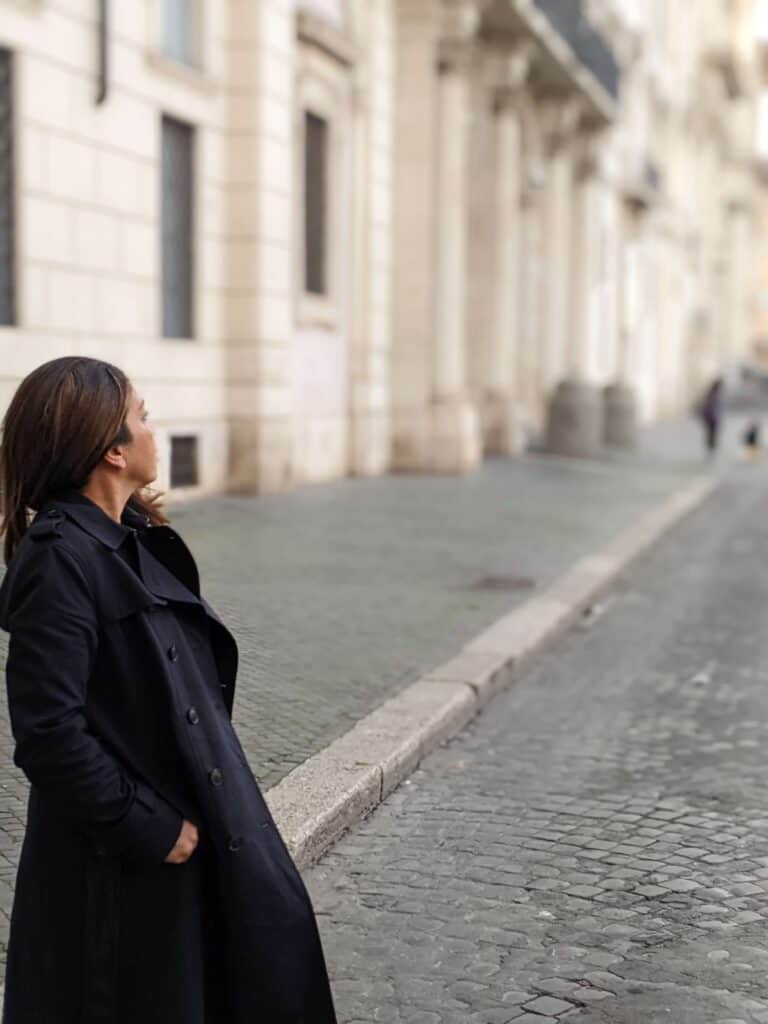
Finally, I want to know more about her plans in terms of translating the book into Italian.
“It will be published in Italy by Frassinelli, part of the Mondadori Group.” She anticipates that the Italian translation will be available by the summer.
Furthermore, an eight-part screen series based on the novel is currently under development for Hulu. Charmaine will be involved as the author, but she is also working on something else.
Black Cake’s copies are still available at the following bookstores in Rome:
- Otherwise bookshop
- Feltrinelli
- Altroquando
- Almost Corner Bookshop
- Anglo American Bookshop
- Libreria Borri Books – Stazione Termini Roma
